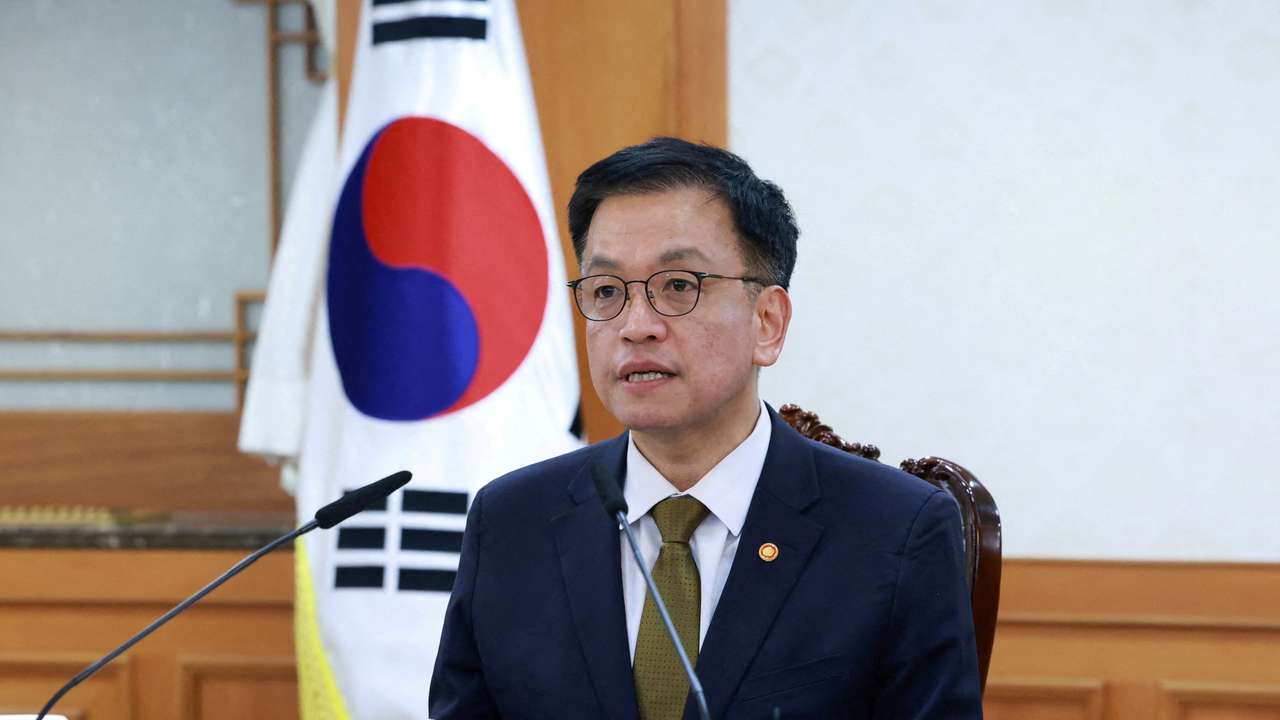South Korea acting president hopes for reciprocal ties with Trump administration

By Jihoon Lee
South Korea's acting president Choi Sang-mok said on Tuesday he hoped for bilateral relations with Washington to develop more reciprocally under the Trump administration, citing concerns about how U.S. policies might hit Asia's fourth-largest economy.
"The government will strive to further strengthen policy cooperation with the United States and promote mutual interests based on the shared value of the Korea-U.S. alliance," Choi said, citing the alliance's slogan of "We Go Together".
Choi said he would seek to have a phone call with U.S. President Donald Trump at the earliest time possible, hours after Trump was sworn in for his second term as the 47th president of the United States.
Choi, the finance minister, has been serving as acting president since Dec. 27, trying to steer South Korea through its worst political crisis in decades after the impeachments of Prime Minister Han Duck-soo and President Yoon Suk Yeol over Yoon's short-lived bid to impose martial law on Dec. 3.
Trump, who held a 12-minute phone call with Yoon just a day after his victory in the November presidential election, has not had a phone call with either Han or Choi.
Earlier on Tuesday, Choi congratulated Trump on his inauguration in a post on social media platform X, saying "The Republic of Korea looks forward to Making the Alliance Great Again".
From South Korea, Cho Hyun-dong, Ambassador to the United States, attended Trump's inauguration ceremony held on Monday as the government representative, while most others, such as delegations of ruling and opposition parties, could not attend the indoor event of limited seats, Yonhap news agency reported.
Chung Yong-jin, chairman of retail conglomerate Shinsegae Group traveled to Washington DC at the invitation of Donald Trump Jr and watched the event at the Capital One Arena, according to the report, among other South Korean business leaders including Coupang Inc. CEO Kim Bom who planned to attend.
"South Korea's domestic political turmoil left it at a diplomatic disadvantage at the beginning of the second Trump administration," said Leif-Eric Easley, a professor at Ewha University in Seoul, comparing with China sending Vice President Han Zheng and Japan sending Foreign Minister Takeshi Iwaya to meet their counterparts.
TARIFF AND EV
Choi also said Seoul would review response measures to Trump's proposed policies, particularly on tariffs and electric vehicles, which are expected to affect its economy both directly and indirectly.
In 2024, South Korea earned a record-high trade surplus of $55.7 billion with the United States, up 25.4% from 2023, raising worries that Trump might seek trade curbs.
Experts say South Korea's defence cost sharing for some 28,500 U.S. troops deployed in the country to deter nuclear-armed North Korea might also be under threat.
Trump has previously called for Seoul to pay more for the deployment, despite a five-year deal signed in October prior to the November election.
South Korea's stock market reacted quickly to news of Trump's policies.
The benchmark KOSPI index erased early gains of more than 1% to turn lower, after Trump said he was thinking of imposing 25% tariffs on imports from neighbouring Canada and Mexico, where South Korean firms also run factories.
Shares of South Korean battery makers also plunged, with LG Energy Solution falling 5%, as Trump revoked the previous administration's electric-vehicle subsidy policy, but the shipbuilding sector, which is on Trump's radar for cooperation, rallied.
This article was produced by Reuters news agency. It has not been edited by Global South World.